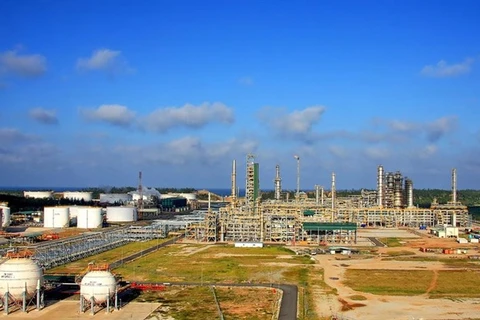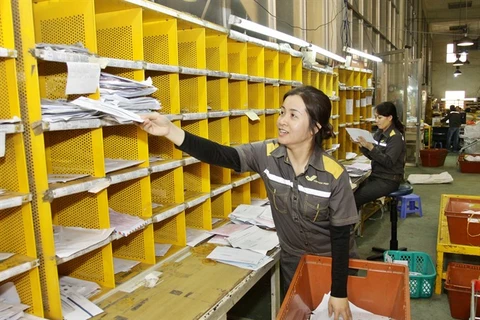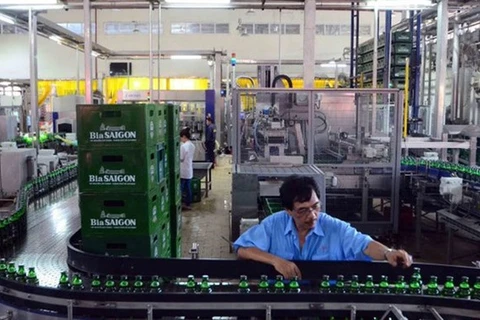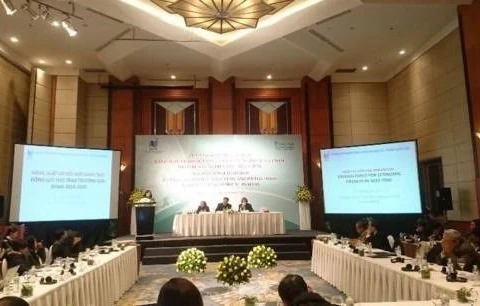 State-owned enterprises can apply the book building method at their initial public offering (IPO) from the beginning of 2018, according to a recently issued decre (Photo nhandan.com.vn)
State-owned enterprises can apply the book building method at their initial public offering (IPO) from the beginning of 2018, according to a recently issued decre (Photo nhandan.com.vn) Hanoi (VNA) - State-owned enterprises (SOEs) can apply the book building method at their initial public offering (IPO) from the beginning of 2018, according to a recently issued decree.
Under Decree 126/2017/ND-CP on SOE equitisation, Prime Minister Nguyen Xuan Phuc asked the Ministry of Finance to issue detailed instructions for implementing this method.
Book building, a systematic process of defining the selling price at an IPO upon demand from institutional investors as they indicate the expected number of shares they want to buy and the prices they are willing to pay, is popular worldwide but new to Vietnam.
There will now be four methods for launching an IPO - auction, underwriting, private placement and book building.
The new method is expected to make SOE equitisation attractive to strategic investors as the selling price is based upon a study of the market demand and negotiations with large buyers from the start.
The new decree, which replaces Decree 59/2011/ND-CP, dated July 18, 2011; Decree 189/2013/ND-CP, dated November 20, 2013; and Decree 116/2015/ND-CP, dated November 11, 2015, is targeted at ensuring transparency in SOE equitisation and hastening listing on the exchanges.
Accordingly, when making the IPO documents, the enterprise must at the same time prepare documents for registering at the Vietnam Securities Depository (VSD) or for stock trading, if eligible.
Documents for registering at VSD or stock trading on the unlisted public company market must be completed within 90 days from the IPO.
This regulation aims to speed up the listing of SOEs following their IPOs.
In addition, it states three methods for equitisation - keep State capital at SOEs intact and issue shares to increase charter capital, sell part of State capital at SOEs or combine State stake sale with additional share issuance, and sell entire State stake or combine entire State stake sale with additional share issuance.
The decree also provides detailed instructions for evaluating an SOE’s value, including land use right value and business advantage value.
Business advantage value includes brand value and development potential value.
This regulation is expected to prevent cases similar to the privatisation of Vietnam Feature Film Studio, during which its brand value was determined to be zero.
The new decree states that the State will not finance the equitisation of SOEs, including enterprises in which the State still holds more than 50 percent stake following equitisation.
Forty-four SOEs are planned to be equitised in 2017 and 127 in the 2017-2020 period.
Forty-four SOEs are planned to be equitised in 2017 and 127 in the 2017-2020 period.
As of October, the finance ministry’s statistics showed that the equitisation plans of 38 SOEs which have total assets of more than 81 trillion VND (3.56 billion USD), were approved. State stake in these SOEs was worth nearly 30 trillion VND.-VNA
VNA























